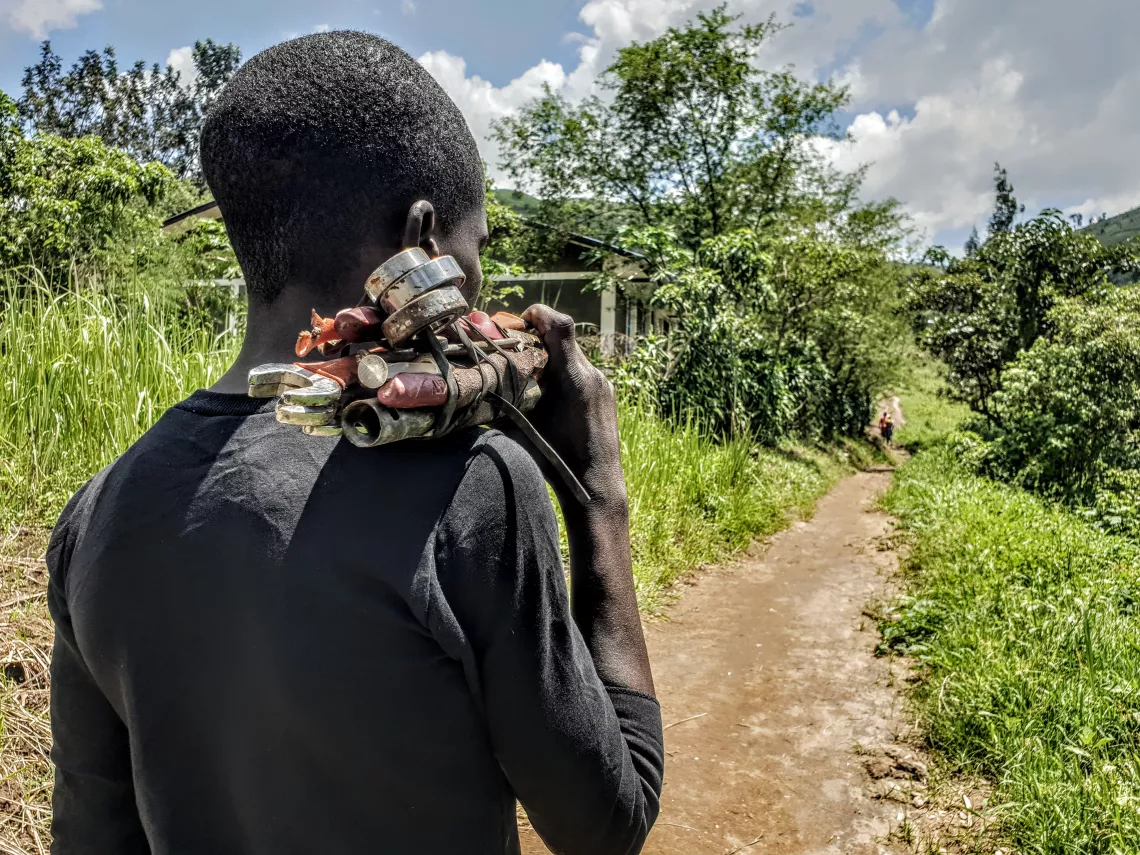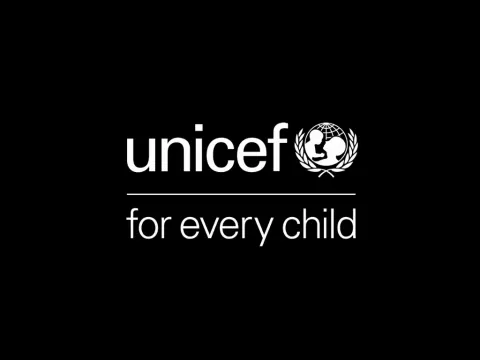Back to civilian life
In South-Kivu province, UNICEF accompanies children who leave militias to find their place back in the society.

- Available in:
- Français
- English
In the eastern part of the Democratic Republic of the Congo (DRC), successive brutal attacks continue to threaten children and their families. Many children are being recruited as militia fighters, sexually assaulted and victims of other terrible violations of their rights.
Children facing the impact of the violence
Earlier this year, community tensions set fire to Kahele territory in South Kivu province. The village of 17-year-old Charmant* was attacked several times and many inhabitants lost their lives. Outraged and wanting to protect their loved ones, some young people in the village joined a militia group. "We were angry and ready to defend our village regardless of our young age," explains Charmant, who did not hesitate to take up arms.

When he saw several of his friends die at the front, Charmant began to question his presence in the militia. "I was wondering whether to leave or to continue," Charmant recalls, he made up his mind to run away and return to civilian life. "I feel released of a heavy burden and ready to start a new life," Charmant says, his vision is to become a motorbike repairman.

With the support of UNCERF, UNICEF is accompanying children who have escaped from armed groups like Charmant. Identified by community facilitators, the children are cared for in UNICEF-supported host families and monitored on a daily basis in a dedicated space where they can play, learn and talk. They also receive vocational training and are supported to start income-generating activities.
Taking up arms so as not to sleep on an empty stomach
"It was wartime and we could spend two days without eating, that’s why I decided to join the group hoping that life would be better in there,’’ explains Héritier*. In the forest, the 14-year-old boy learned how to handle a weapon so he wouldn’t lack something to eat. "My heart grieved as I was threatening people and steal their belongings but I had no choice," he says sadly.

After a few months, Héritier managed to escape. Then was identified by a community facilitator, they took care of him. "Today I live quietly, I have peace of mind and I am proud to retrace my steps with dignity," says Héritier, whose dream is to become a mechanic. The boy has been placed in a host family until he can be reunited with his family members.
Reclaiming a place in society
"We suffered a lot, we were treated like slaves and exposed to many dangerous situations," says Isaac*, he has been in a militia for 11 months. The boy was forced to join the group while he was in a field with his friends. One day, the group's base was attacked and Isaac came under fire. During the firefight, Isaac found his way back to the path he took when he was joining the militia and managed to escape.

"I almost died when i was escaping because what I went through was just inhuman," says Isaac, still saddened by all the hardships he faced but determined to rebuild his life. "I would like to go back to school so that I can find a job to support my family," he adds. UNICEF is now supporting 11 children in Kahele territory. They are being cared for in transitional host families and receive psychosocial support.
All the children will receive vocational training for several months, and will be provided with integration kits to start their business and enable their empowerment. UNICEF facilitates family tracing to reintegrate the children into their biological families.
* Names have been changed to protect the identity of the children.





